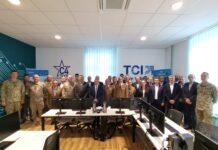This post is also available in:
Română
Nearly three-quarters (72%) of Central and Eastern European (CEE) CEOs, including Romania, anticipate the rise of cybercrime in 2022, given that last year was one of the most difficult in history in terms of security. cybernetics, according to the Central and Eastern Europe (CEE) edition of the PwC 2022 Digital Trust Insights study. In comparison, in the EMEA (Europe, Middle East and Africa) or globally, only 60% of CEOs expect an increase in cybercrime, the difference being explained by the maturity of cybersecurity ecosystems.
In CEE, although most companies have increased their investments in cybersecurity and data protection, only 20% say they have seen benefits so far, which raises the question of how future investments should be allocated to be effective.
”DThe report notes that there is a high degree of awareness that cyber security risks are on the rise. At the same time, organizations understand that there are growing challenges when they want to gain the trust of customers and other business partners that their data will be protected. Under these conditions, investments in cybersecurity have increased, but in the absence of a coherent strategy for adopting and implementing technologies, the result has often been only greater complexity within organizations, with no visible benefits of allocating these funds. Unfortunately, high complexity amplifies cyber risks “, said Mircea Bozga, PwC Romania Risk Assurance Partner.
Thus, about half of CEE respondents confirm that a high organizational complexity generates cyber and privacy risks, and data governance (64%) and the cloud (63%) rank first in this regard. The percentage is higher globally, with almost three quarters of respondents showing that high organizational complexity generates security and privacy risks.
Risky organizational habits include: using multiple technology solutions that do not work together, and failing to comply with data management or third-party risk management processes.
Without a focus on simplifying cyber ecosystems, organizations can become vulnerable, and the consequences will spread to all of an organization’s operations.
“When it comes to simplified cyber security, adopting multiple technology solutions is just one part of the solution. But there is a need for a unified strategy that involves the entire organization – technology, processes, teams and management, aligned with business objectives and that will strengthen resilience to any disruption. “, said Robert Girdoc, Senior Manager Risk Assurance PwC Romania.
The main consequence of cyber complexity in CEE is “lack of operational resilience or inability to recover from a cyber attack or technological failure”. This is followed by the inability to retain the talents and financial losses generated by security breaches or cyber attacks.
Asked where they would direct their spending to simplify cybersecurity, CEE respondents said they would focus more on streamlining technology and restructuring security teams, followed by introducing process controls and reducing the use of outdated technologies.
Digital Trust Insights Survey 2022 CEE is part of the Global Digital Trust Insights 2022 and has been conducted by companies in Poland, the Czech Republic, Hungary, Romania, Kazakhstan, Ukraine, Croatia, Bulgaria and Latvia.















